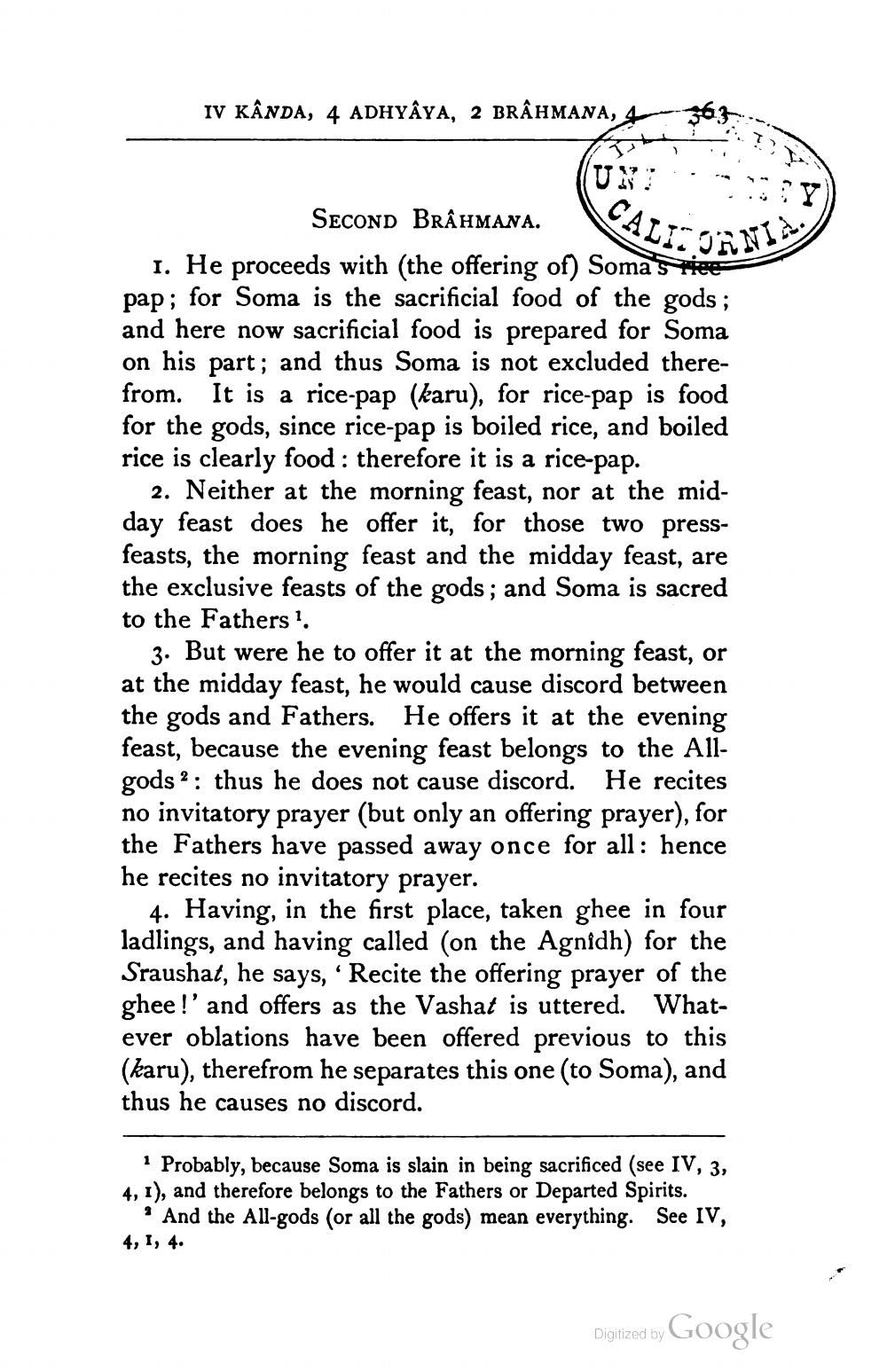________________
IV KÂNDA, 4 ADHYAYA, 2 BRÂHMANA,
4
365
( U
EY SECOND BRÂHMANA. L E VIEW 1. He proceeds with the offering of) Somast pap; for Soma is the sacrificial food of the gods ; and here now sacrificial food is prepared for Soma on his part; and thus Soma is not excluded therefrom. It is a rice-pap (karu), for rice-pap is food for the gods, since rice-pap is boiled rice, and boiled rice is clearly food : therefore it is a rice-pap.
2. Neither at the morning feast, nor at the midday feast does he offer it, for those two pressfeasts, the morning feast and the midday feast, are the exclusive feasts of the gods; and Soma is sacred to the Fathers ?
3. But were he to offer it at the morning feast, or at the midday feast, he would cause discord between the gods and Fathers. He offers it at the evening feast, because the evening feast belongs to the Allgods 2: thus he does not cause discord. He recites no invitatory prayer (but only an offering prayer), for the Fathers have passed away once for all: hence he recites no invitatory prayer.
4. Having, in the first place, taken ghee in four ladlings, and having called (on the Agnidh) for the Sraushat, he says, ' Recite the offering prayer of the ghee !' and offers as the Vashat is uttered. Whatever oblations have been offered previous to this (karu), therefrom he separates this one (to Soma), and thus he causes no discord.
1 Probably, because Soma is slain in being sacrificed (see IV, 3, 4, I), and therefore belongs to the Fathers or Departed Spirits.
* And the All-gods (or all the gods) mean everything. See IV, 4, 1, 4.
Digitized by Google




